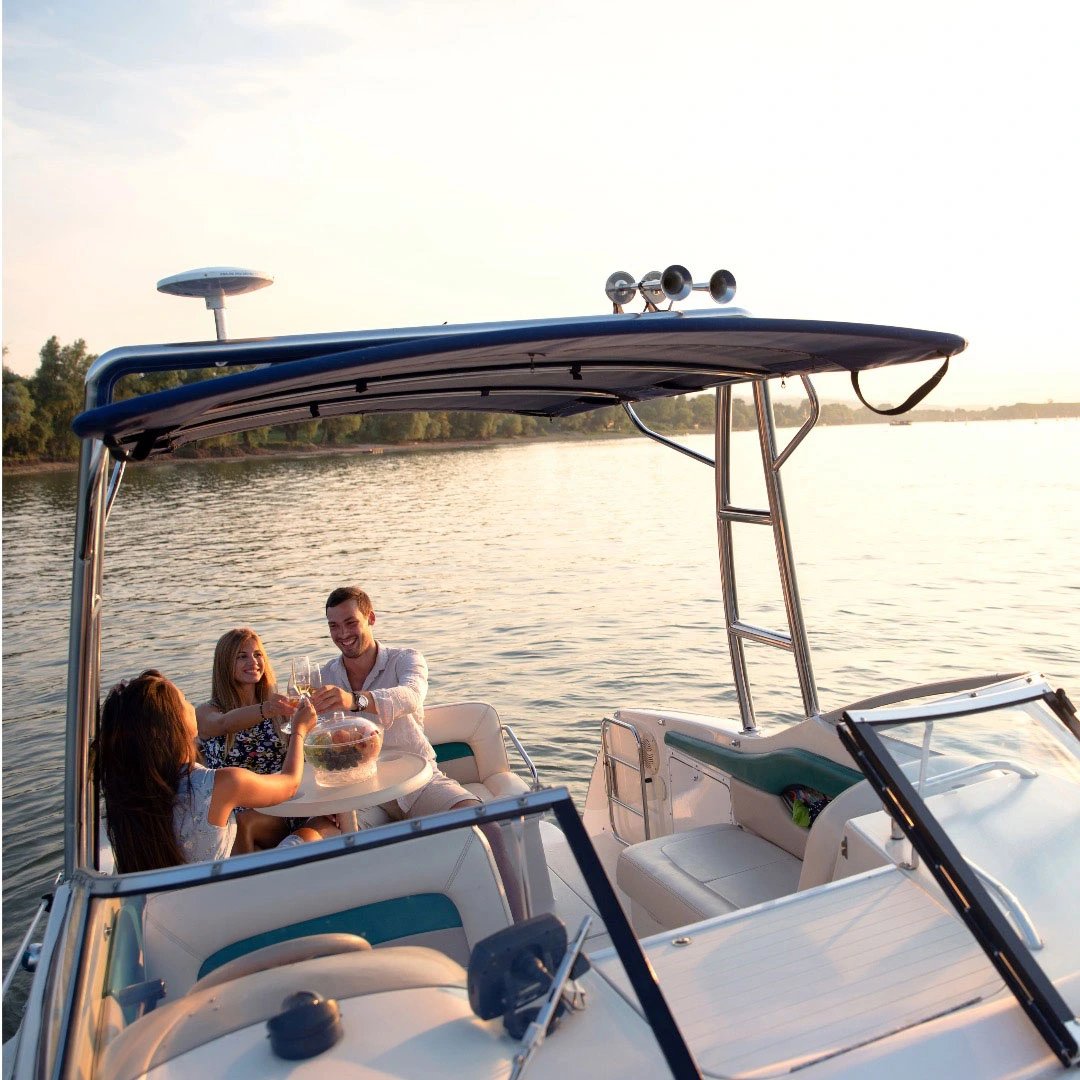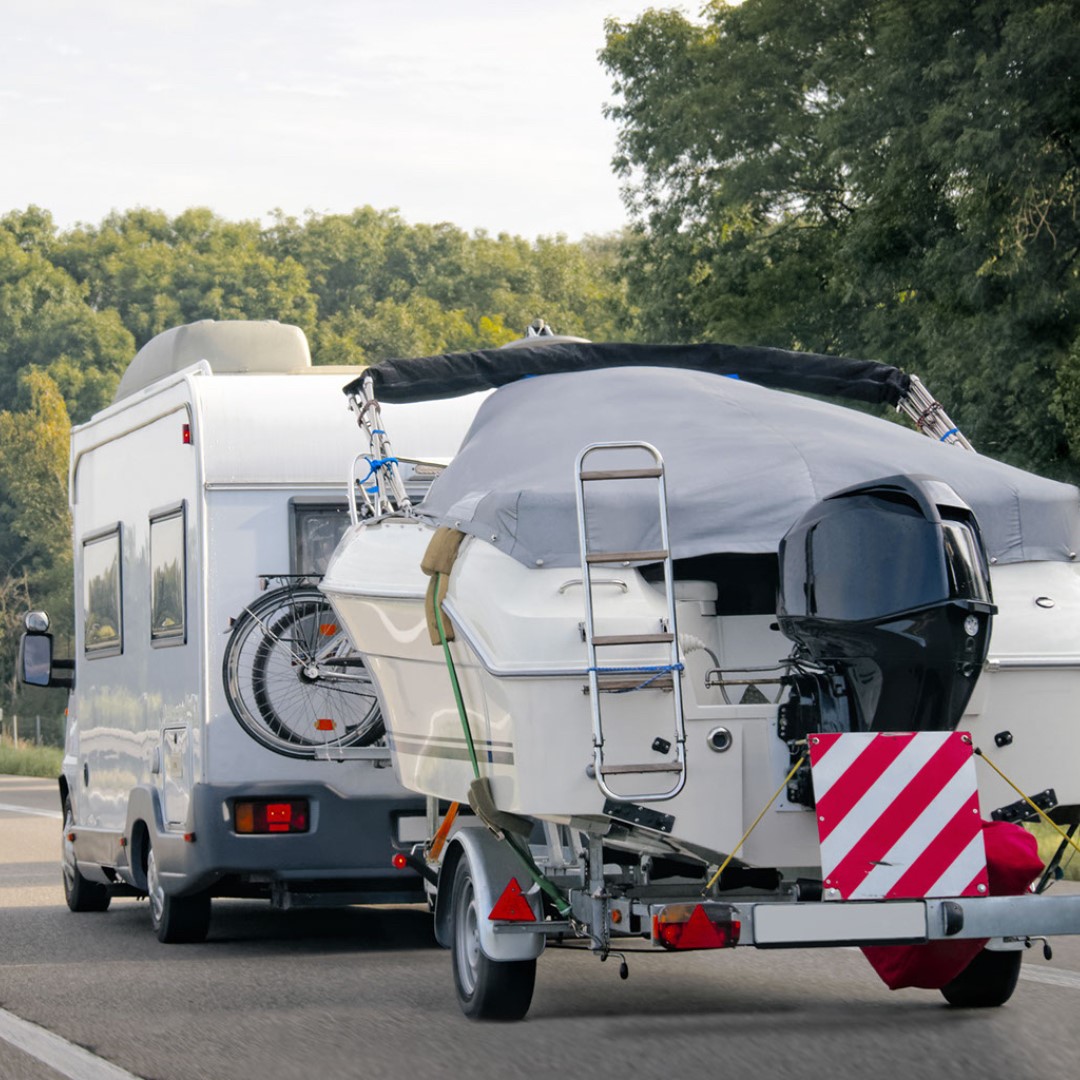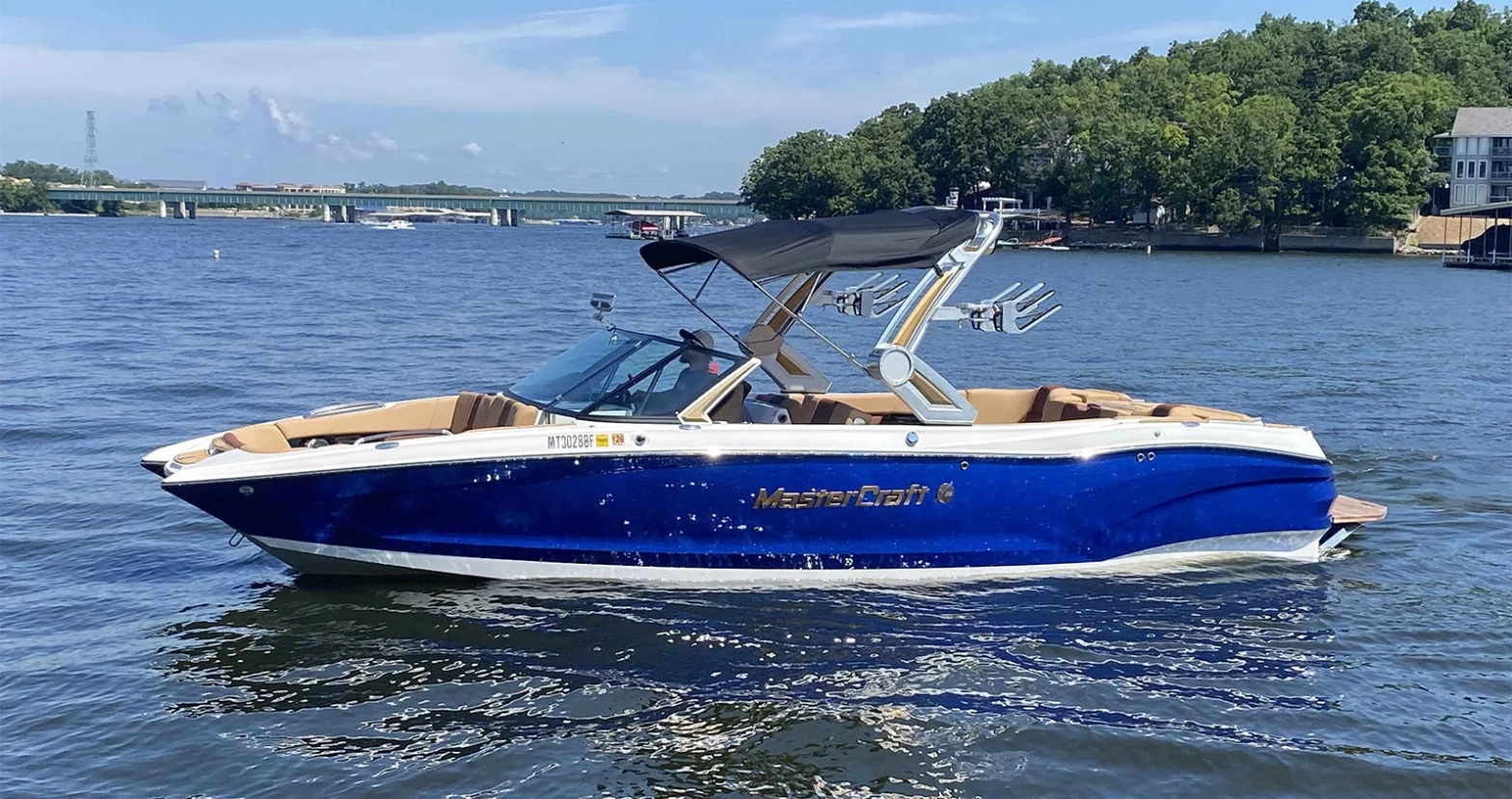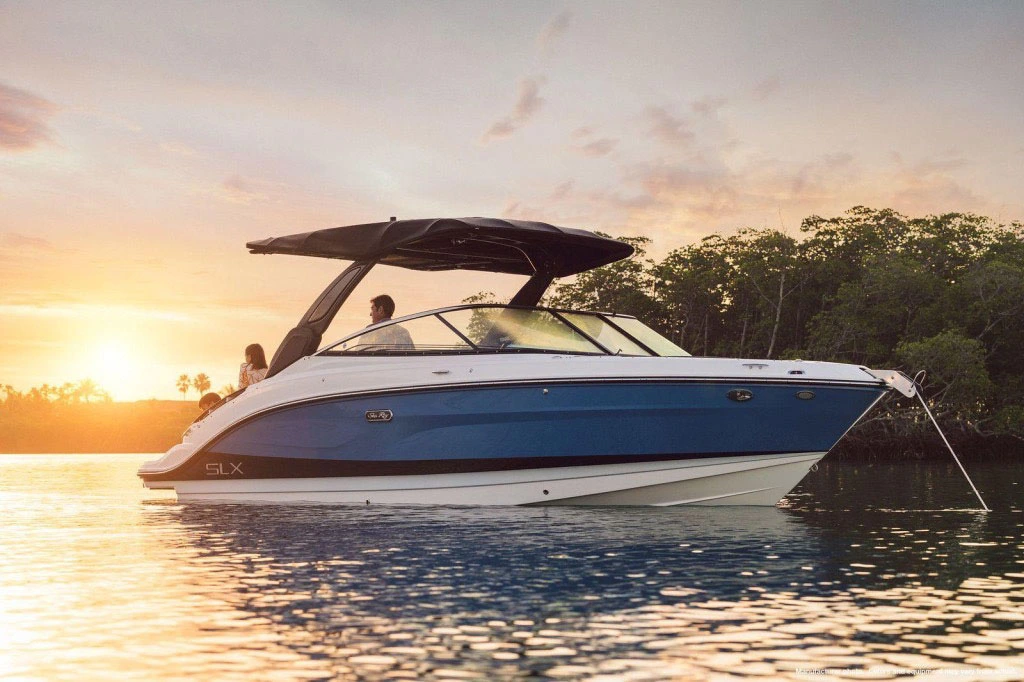Buying a boat is an exciting experience, but it can be daunting if you’re not sure where to start. It is generally advisable to work directly with a professional boat dealer or manufacturer. Both have a wide selection of entry-level models at reasonable prices. If you’re looking to save money, you may be considering buying a used boat from a private seller.
We have created this clear step-by-step guide on purchasing a boat from a private seller. It will guide you through the process and safeguard you from any scams during your boat transaction. Here’s what you need to do:
1. Searching for a used boat.
Boats can be found for sale in a variety of ways, including online listings, classified ads, and word-of-mouth. Once you find a boat you’re interested in, contact the seller and arrange a phone call or video chat to ask questions and get to know them better. Avoid communicating with sellers via email only, as this can be a common tactic used by scammers. If you’re unable to see the boat in person, ask a trusted friend or family member to do so on your behalf.
Here are some of the basic questions you should ask the seller:
- Where is the boat located?
- Is it currently in the water?
- Are there any service records available?
- Is the title in hand?
- Why are they selling the boat?
2. Boat Inspection.
A good used boat will have these qualities:
- Long term ownership – Single Owner is best.
- Regular Use – Ideally, the boat should have logged around 100 hours of use per year. However, gas engines shouldn’t exceed 3000 hours.
- Signs of Proactive Care and maintenance – Boats with detailed maintenance records often exhibit better overall condition and performance.
-
Boat Inspection – Get a mechanic / surveyor to check the boat condition for you from bow to stern. You should never buy a gas motor without a compression test – Gas motors will still start with poor compression. Diesels wont. In fact many insurance companies will require a boat survey to create a policy.
When buying a larger, more expensive boat, it is worth hiring a professional marine surveyor to conduct a condition and valuation (C&V) survey and sea trial. A marine surveyor is a qualified professional who can inspect the boat and identify any potential problems.

Test-Drive – Take a Sea Trial and assess the boat’s performance across varying speeds and water conditions. Observe its handling during turns and maneuvers, and be vigilant for any unfamiliar engine or system noises that may arise during the trial.
3. Proof of Ownership.
Title Check
- Before you agree to buy a boat, ask the seller to show you proof of ownership. This could be a copy of the boat’s title, registration, or bill of sale. Make sure that the title is in the seller’s name and that there are no liens or other encumbrances on the boat.
- You can also get an abstract of title from the U.S. Coast Guard. An abstract of title is a document that shows the history of ownership of a boat. It will show you who has owned the boat in the past and whether there are any liens or other problems with the title.
4. Purchase Agreement and Bill of Sale.
-
Purchase Agreement
A purchase agreement is a legal document that outlines the terms of a sale. It should include the purchase price, the date of sale, the terms of payment, and any contingencies that must be met before the sale can be finalized.
It is important to use a purchase agreement that meets the requirements of your state. You can find purchase agreements online or from a lawyer.
The purchase agreement should be signed by both the buyer and the seller.
-
Bill of Sale
A bill of sale is a document that transfers ownership of a boat from the seller to the buyer. It should include the name of the boat, the hull identification number, the purchase price, and the date of sale.
The bill of sale is required by the state when you register the boat. You can find bill of sale forms online,such as the U.S. Coast Guard
The bill of sale should be signed by both the buyer and the seller.
Legal recourse
Having a purchase agreement and bill of sale in place can help you protect yourself in case of any problems after the sale. For example, if the boat is not in the condition that was represented, or if there are liens on the boat, you can use the purchase agreement to take legal action against the seller.
4. Escrow Services.
An escrow service is a neutral third party that holds the funds in a transaction until all conditions of the sale have been met. This can be a good way to protect both the buyer and seller in a boat sale, especially for significant transaction amounts.

When using an escrow service, the buyer will typically deposit a portion of the purchase price into the escrow account. The seller will then deliver the boat to the buyer, and the buyer will have a certain amount of time to inspect the boat and make sure that it meets the terms of the purchase agreement. If the buyer is satisfied with the boat, the escrow agent will release the funds to the seller. If the buyer is not satisfied with the boat, they can cancel the sale and the escrow agent will return the funds to the buyer.
Deposit
The seller may require a deposit to secure the transaction. The industry standard is a 10% deposit, which is typically subject to a satisfactory survey and sea trial. This means that if the survey or sea trial is not satisfactory, the buyer can cancel the sale and the deposit will be returned.
It is important to have the deposit terms in writing in the purchase agreement. This will help to avoid any disputes later on.
5. Taking Delivery.
Once the buyer has received the boat and is satisfied that it is in the condition that was promised, they will need to confirm this with the escrow agent. The escrow agent will then arrange for the funds to be disbursed to the seller and the escrow transaction will be finalized.
If an escrow service is not being used, it is recommended to have a witness present when the bill of sale is signed and the final payments are made. This can be important if there are any disputes later on, as it will provide legal evidence that the payments were made.
Is a Used Boat the Right Choice for You?
Buying a used boat can be a cost-effective option, but it’s important to be aware of the potential risks and challenges. A reputable dealer would typically do all of this hard work for you, but if you are willing to put in the extra work, buying a pre-owned boat can be a great way to save money and get a boat that you love.
Buying a boat is an exciting experience, but it can be daunting if you’re not sure where to start. It is generally advisable to work directly with a professional boat dealer or manufacturer. Both have a wide selection of entry-level models at reasonable prices. If you’re looking to save money, you may be considering buying a used boat from a private seller.
- Searching for a used boat.
Boats can be found for sale in a variety of ways, including online listings, classified ads, and word-of-mouth. Once you find a boat you’re interested in, contact the seller and arrange a phone call or video chat to ask questions and get to know them better. Avoid communicating with sellers via email only, as this can be a common tactic used by scammers. If you’re unable to see the boat in person, ask a trusted friend or family member to do so on your behalf.
- Boat Inspection.
A good used boat will have these qualities:
Long term ownership – Single Owner is best.
Regular Use – Ideally, the boat should have logged around 100 hours of use per year. However, gas engines shouldn’t exceed 3000 hours.
Signs of Proactive Care and maintenance – Boats with detailed maintenance records often exhibit better overall condition and performance.
Boat Inspection – Get a mechanic / surveyor to check the boat condition for you from bow to stern. You should never buy a gas motor without a compression test – Gas motors will still start with poor compression. Diesels wont. In fact many insurance companies will require a boat survey to create a policy. - Proof of Ownership.
Title Check
Before you agree to buy a boat, ask the seller to show you proof of ownership. This could be a copy of the boat’s title, registration, or bill of sale. Make sure that the title is in the seller’s name and that there are no liens or other encumbrances on the boat.
You can also get an abstract of title from the U.S. Coast Guard. An abstract of title is a document that shows the history of ownership of a boat. It will show you who has owned the boat in the past and whether there are any liens or other problems with the title. - Purchase Agreement and Bill of Sale.
Purchase Agreement
A purchase agreement is a legal document that outlines the terms of a sale. It should include the purchase price, the date of sale, the terms of payment, and any contingencies that must be met before the sale can be finalized.
It is important to use a purchase agreement that meets the requirements of your state. You can find purchase agreements online or from a lawyer.
The purchase agreement should be signed by both the buyer and the seller.
Bill of Sale
A bill of sale is a document that transfers ownership of a boat from the seller to the buyer. It should include the name of the boat, the hull identification number, the purchase price, and the date of sale.
The bill of sale is required by the state when you register the boat. You can find bill of sale forms online,such as the U.S. Coast Guard
The bill of sale should be signed by both the buyer and the seller. - Escrow Services.
An escrow service is a neutral third party that holds the funds in a transaction until all conditions of the sale have been met. This can be a good way to protect both the buyer and seller in a boat sale, especially for significant transaction amounts.
When using an escrow service, the buyer will typically deposit a portion of the purchase price into the escrow account. The seller will then deliver the boat to the buyer, and the buyer will have a certain amount of time to inspect the boat and make sure that it meets the terms of the purchase agreement. If the buyer is satisfied with the boat, the escrow agent will release the funds to the seller. If the buyer is not satisfied with the boat, they can cancel the sale and the escrow agent will return the funds to the buyer. - Taking Delivery.
Once the buyer has received the boat and is satisfied that it is in the condition that was promised, they will need to confirm this with the escrow agent. The escrow agent will then arrange for the funds to be disbursed to the seller and the escrow transaction will be finalized.
If an escrow service is not being used, it is recommended to have a witness present when the bill of sale is signed and the final payments are made. This can be important if there are any disputes later on, as it will provide legal evidence that the payments were made.











